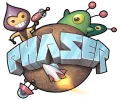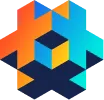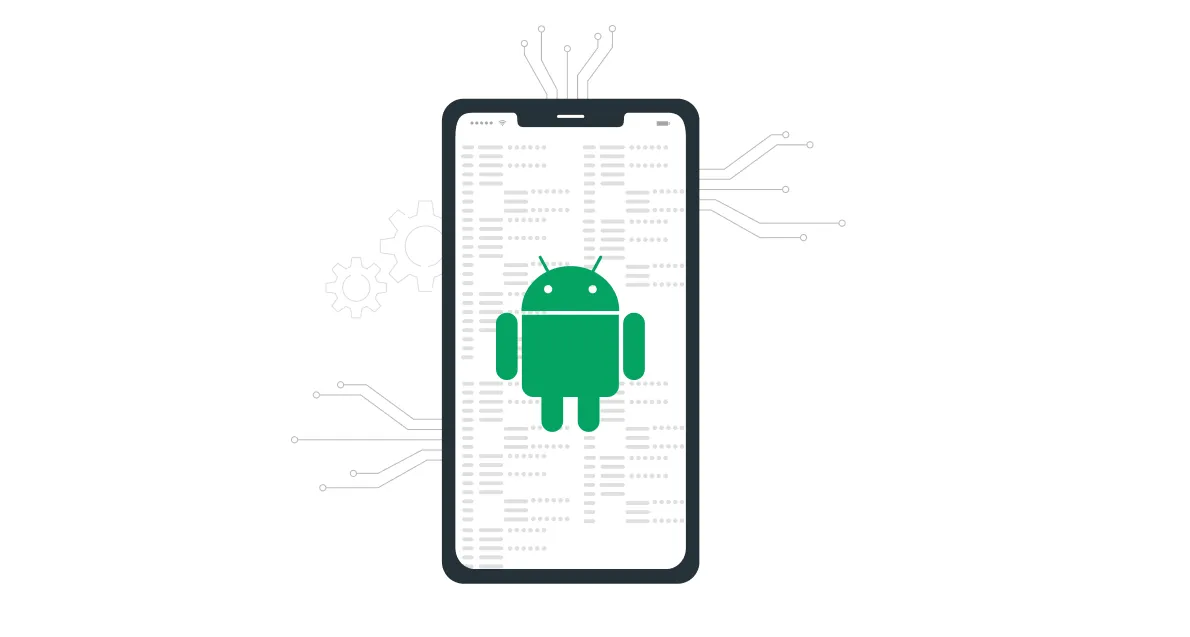Top Game Engines for Crafting Mobile Games
The mobile gaming industry continues to flourish, setting new records in revenue and user engagement each year. Crafting mobile games presents an enticing and promising venture, offering both recreational enjoyment and potential financial rewards. To embark on the development journey for Android and iOS platforms, developers require specialized engines capable of facilitating seamless game creation for each platform, optimizing performance to accommodate the inherent hardware constraints of mobile devices, and expediting the development process to minimize time-to-market. An engine encompasses a suite of tools and technologies encompassing graphics rendering, physics simulations, animation frameworks, audio management, input/output control, and more. Selecting the appropriate engine entails a comprehensive assessment of various factors, making it a challenging endeavor for developers. Dive into the article to gain deeper insights into this crucial decision-making process.
Figures and Projections for the Mobile Gaming Market
The mobile gaming market stands out as one of the fastest-growing segments within the entertainment industry. In 2023, it amassed a revenue of $116.4 billion, a figure projected to surpass $136 billion by 2024. Concurrently, the number of mobile gaming enthusiasts continues to surge steadily.

The burgeoning popularity of mobile platforms and applications for Android and iOS can be attributed to several key factors:
- The ubiquitous adoption of smartphones and tablets, fueling interest in mobile platform development.
- The convenience afforded by gaming through mobile applications and tablets.
- The accessibility of a diverse array of mobile games for installation.
- The abundance of varied applications catering to user preferences.
Mobile games now compete with PC and console games, with optimistic prospects underscored by advancements in mobile technologies and heightened user awareness of the convenience and possibilities offered by mobile devices and applications. Consequently, mobile game development emerges as an exceptionally appealing domain for both aspiring and seasoned developers. Noteworthy statistics concerning the contemporary mobile gaming market include:
- Mobile games accounted for over 50% of total gaming industry revenue in 2023.
- The average user expenditure on mobile games surpasses $85 annually.
- The most favored genres encompass casual, strategy, role-playing, and puzzle games.
The mobile gaming market fosters an environment rife with opportunities and support for developers, encompassing accessible and comprehensive documentation, as well as the requisite tools for game creation.
Types of Game Engines for Android and iOS Game Development in 2024
Various engines cater to the creation of mobile games, appealing to both novice and seasoned developers. Among the plethora of options, the following categories stand out:
- Multi-platform licensed engines: These engines facilitate the development of games compatible with a range of platforms, including Android and iOS. Examples of such engines include Unity, Unreal Engine, Godot Engine, and Amazon Lumberyard.
- Specialized engines: Optimized specifically for mobile game development, these engines enhance productivity and development efficiency. Notable examples encompass Cocos2d-x/Kobold2D, SpriteKit/SceneKit, Corona SDK, Defold, and KorGE.
Each engine boasts distinct features and characteristics. It is imperative to thoroughly acquaint oneself with the most prominent options available in 2024, as they serve as indispensable tools for developing programs tailored to mobile platforms.

Unity
Unity stands out as the premier engine for mobile game development in 2024, offering several key advantages:
- versatility, supporting the creation of both 2D and 3D games;
- platform support, enabling development for various mobile platforms;
- active community, benefiting from a vibrant community of developers;
- licensing options, offering both a free basic version with limitations and a paid version;
- programming language, supporting C# for programming;
- visual scripting, providing intuitive visual scripting without the necessity of writing code.
While the free version suffices for many projects, the paid version unlocks advanced features essential for mass-market publishing.

Unreal Engine
Unreal Engine reigns supreme as the top licensed engine for mobile game development, boasting several notable advantages:
- high-quality graphics, supporting advanced graphics technologies;
- extensive community, benefiting from a vast repository of resources and training materials;
- cross-platform compatibility, enabling game development for diverse platforms;
- programming languages, utilizing C++ and the Blueprint visual scripting language;
- free version, offering a free version.
Though Unreal Engine may pose a learning curve for novice developers, it empowers the creation of complex projects.

Starling Framework
Starling Framework emerges as the optimal choice for crafting high-performance 2D games for mobile devices, featuring the following key attributes:
- simplicity and productivity, offering an array of tools for streamlined development;
- focus on 2D graphics, prioritizing 2D graphics rendering;
- cross-platform support, allowing game development for various mobile platforms (Android, iOS) using plugins and libraries in JavaScript, C++, Haxe, and Kotlin;
- Adobe Air technology, supporting Adobe Air technology;
- user-friendly architecture, featuring a user-friendly architecture conducive to development.
However, Starling is not suited for 3D game development, as it is exclusively designed for 2D gaming experiences.

Construct 3
Construct 3 emerges as a popular game creation engine celebrated for its accessibility and user-friendliness. Its key advantages include:
- visual programming system, employing a visual programming system for intuitive project development;
- simplified interface, featuring a straightforward and intuitive interface;
- limited free version, offering a free version with certain limitations;
- emphasis on 2D game development, primarily focusing on 2D game creation;
- cross-platform support, supporting cross-platform development for various platforms.
While the visual programming system proves advantageous for basic projects, more complex mechanics may necessitate coding.

SpriteKit и SceneKit
SpriteKit and SceneKit serve as Apple's proprietary game frameworks, tailored for crafting high-performance 2D and 3D games exclusively for iOS devices. Key features include:
- utilization of Apple's optimized code, leveraging Apple's optimized code for enhanced performance;
- seamless integration, integrating seamlessly with other tools and APIs, supporting Game Center, Haptic Touch, and Metal for graphics;
- comprehensive documentation and community support, benefiting from extensive documentation and a robust developer community, facilitating development processes.
Given their exclusive compatibility with iOS devices, these frameworks are not suitable for cross-platform development.

Phaser
Phaser stands out as a free, open-source JavaScript framework designed for 2D game development, offering cross-platform compatibility and flexibility. Key advantages encompass:
- comprehensive feature set, encompassing a full suite of features for networking, input/output processing, animation, and physics;
- ideal for novice developers, the free version provides excellent opportunities for novice developers without specialized skills to venture into mobile game creation.

AppGameKit
AppGameKit represents a cross-platform game engine supporting both 2D and 3D gameplay. Key advantages include:
- support for BASIC Programming Language, facilitating development using the BASIC programming language;
- versatility in graphics, supporting both two- and three-dimensional graphics;
- robust built-in development tools, offering powerful built-in development tools;
- cross-platform support, enabling cross-platform development;
- accessibility and documentation, benefiting from accessibility and comprehensive documentation.
AppGameKit serves as an excellent choice for developers seeking to grasp the fundamentals of mobile game development across various platforms, including Android and iOS.

MonoGame
MonoGame stands out as an excellent platform for mobile game development, boasting several key advantages:
- support for C# and other .NET languages for coding;
- cross-platform compatibility;
- open-source nature;
- active community engagement;
- abundance of development tools;
- stability and user-friendliness;
- high performance.
This engine garners popularity among both novice and experienced developers actively engaged in mobile game creation.

Haxe
Haxe transcends mere game engine status, serving as a cross-platform language and suite of tools for developing mobile applications and games for Android and iOS. Notable advantages include:
- cross-platform compatibility, supporting development on both Android and iOS;
- versatility and interactive design capabilities;
- compilation into various native programming languages, including C#, C++, Python, JavaScript, and others;
- open-source nature;
- availability of a limited free version;
- numerous game plugins and libraries.
However, it's worth noting that novice developers without specialized skills may encounter some challenges in mastering this game engine.

Godot
Godot stands out as a robust game engine renowned for its extensive functionality. It enables the creation of both 2D and 3D games through visual scripting options. However, compared to other engines, Godot may offer a more limited array of tools.

GameSalad
GameSalad emerges as a popular engine in the realm of mobile game development, distinguished by its intuitive visual editor. The inclusion of visual scripts and a user-friendly interface renders it accessible for beginners, facilitating development without requiring extensive programming knowledge.

Fusion 2.5
Fusion 2.5 serves as a cross-platform engine tailored for mobile game development, utilizing Lua as its programming language. It features a convenient visual editor for code writing, streamlining the development process.

Defold
Defold represents a new, free, cross-platform, open-source game development project ideal for modular creation of both 2D and 3D games. Renowned for its user-friendliness, accessibility, and robust feature set, Defold simplifies development processes.

Buildbox
Buildbox enjoys popularity as a mobile game development engine acclaimed for its high performance. Its visual approach enables swift prototyping and experimentation with game mechanics. However, it's important to consider certain limitations associated with the visual editor for programming, which may impact the accuracy of results.

Gideros
Gideros emerges as a cross-platform game engine designed specifically for crafting 2D games across various platforms, including Android, iOS, Windows, macOS, and HTML5. Gideros facilitates structured development through object-oriented programming, with Lua serving as the programming language.

GameMaker Studio 2
GameMaker Studio 2 stands out as a cross-platform engine tailored for developing 2D games across various genres, styles, and complexity levels. Key features include:
- easy development facilitated by built-in tools supporting visual scripting and the GML programming language;
- cross-platform compatibility;
- abundance of community-generated content and information;
- flexibility and streamlined mobile game development.
GameMaker Studio 2 caters to both novice and seasoned developers, offering a plethora of possibilities without requiring complex skills to master. It enables the realization of projects of varying complexity for programmers at all levels.

Cocos2D-x
Cocos2d-x emerges as a popular, free, and open-source game engine supporting C++, JavaScript, and Lua. Suitable for crafting 2D games and other graphical applications, it extends compatibility to various platforms including iOS, Android, Windows, macOS, Linux, web browsers, and smart devices. Key advantages encompass:
- cross-platform support across multiple platforms;
- compatibility with multiple programming languages including Lua, JavaScript, and C++;
- ease of tool mastery;
- robust community of programmers;
- abundance of content and information resources;
- open-source nature for games.
Working with this engine necessitates proficiency in programming languages and a fundamental understanding of basic algorithms.
Conclusion
As you can see, there are a variety of engines for creating mobile games. To choose the most suitable one, you should pay attention to such criteria:
availability of necessary development tools and plugins; requisite skills for operation; programming language for project code implementation; development budget constraints; potential for idea realization.
While all these engines facilitate working with graphical elements for game creation, a more precise selection may entail experimentation with multiple options before settling on the most suitable one for a specific project.







